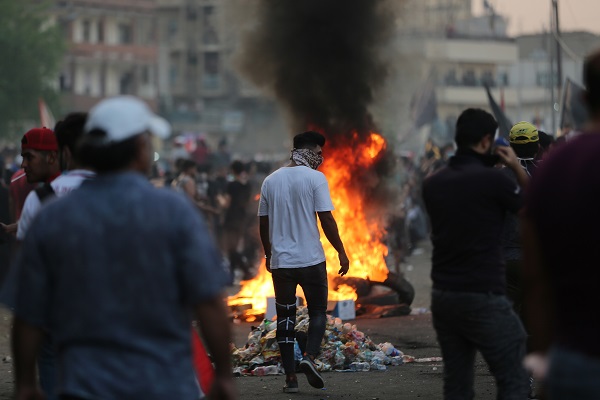Baghdad, The death toll in anti-government protests across Iraq in the past five days has increased to 93, with nearly 4,000 others injured, the countrys High Commission for Human Rights said on Saturday.
In a statement, the Commission added that of the 555 people who have been detained, 355 of them have already been released, in line with a promise made on Thursday night by Prime Minister Adel Abdul Mahdi, Efe news reported.
The protests also caused material damage to 37 buildings, the statement added.
Meanwhile, dozens of protesters took to the streets in at least two areas in the Iraqi capital asking for better services and denouncing corruption and unemployment for the fifth consecutive day, an Interior Ministry source told Efe.
The security forces were on the scene trying to disperse them.
Authorities lifted a curfew that took effect after deadly clashes with security forces over the part two days in Baghdad.
Traffic returned to normal on Saturday morning, except for around Tahrir Square in central Baghdad, where most of the action took place. Security forces were still deployed there.
Heavy military and police presence is concentrated especially in the vicinity of Jumhuriya Bridge, which leads to the fortified Green Zone where government buildings and embassies are located.
The public is not able to access the Green Zone at present.
According to the same source, roads connecting the capital with the other provinces have re-opened.
But restrictions on internet access are still in place and a large number of security forces are deployed in Baghdad’s main streets.
The protests began on Tuesday in the capital.
Iraqis were urged to protest on social networks to express their outrage at the lack of work opportunities and generalized corruption, as well as demand better medical, electric and water services.
Iraqi citizens have taken to the streets several times in recent months to protest against the government of Mahdi, who took office last October.
The country is rich in oil but suffers from serious economic problems after years of conflict and poor management of resources.










